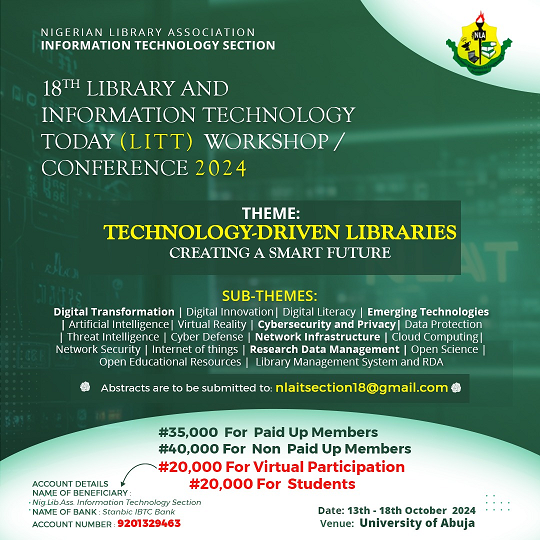THE INFLUENCE OF STUDENTS INDUSTRIAL WORK EXPERIENCE SCHEME ON ACADEMIC PERFORMANCE OF LIBRARY AND INFORMATION SCIENCE UNDERGRADUATES IN TWO LIBRARY SCHOOLS IN OSUN STATE, NIGERIA
Keywords:
Academic performance, Library and Information Science Students, Library schools, Osun State, Students Industrial Work Experience SchemeAbstract
The aim of Students Industrial Work Experience Scheme (SIWES) is to assist undergraduates in corroborating theories of the classroom with the realities of the workplace. Library and Information Science undergraduates like their counterparts in practical-oriented courses are expected to participate in the scheme while in advanced level of their training. However, the context observations of the researchers revealed that students often do not exhibit any form of improvement in their learning even after engaging in the exercise. This development necessitated the need to investigate the influence of SIWES on academic performance of LIS undergraduates with reference to Adeleke University and Federal Polytechnic Ede, Osun State. Descriptive research design was adopted for the study. The population comprised all the final year students in the two library schools in the 2020/2021 academic session totalling 259. Total enumeration was employed. Structured questionnaire was used for data collection. Out of the 259 copies of questionnaire administered, 220 were retrieved whereas 206 representing 80% were found valid for analysis. Data collected were analysed with the Statistical Product and Services Solution (SPSS) using descriptive statistics such as frequency count, simple percentages, mean and standard deviation. A significant improvement in the Cumulative Grade Point Average of most of the students in the semester immediately after participating in SIWES from the two schools was reported. The study recommends among others that undergraduates embarking on SIWES should endeavour to make maximum use of the opportunity to improve their academic performance, build professional capacity and brighten their chances of employment after graduation.







